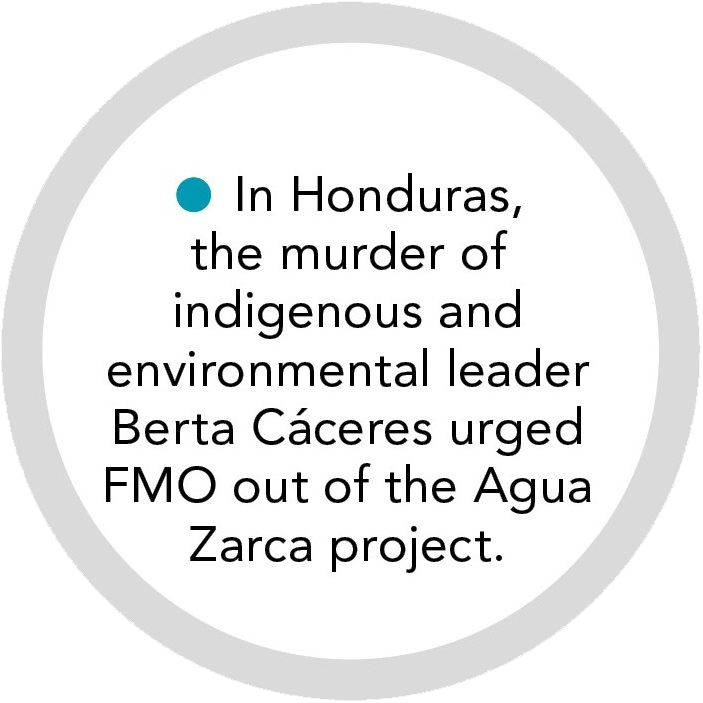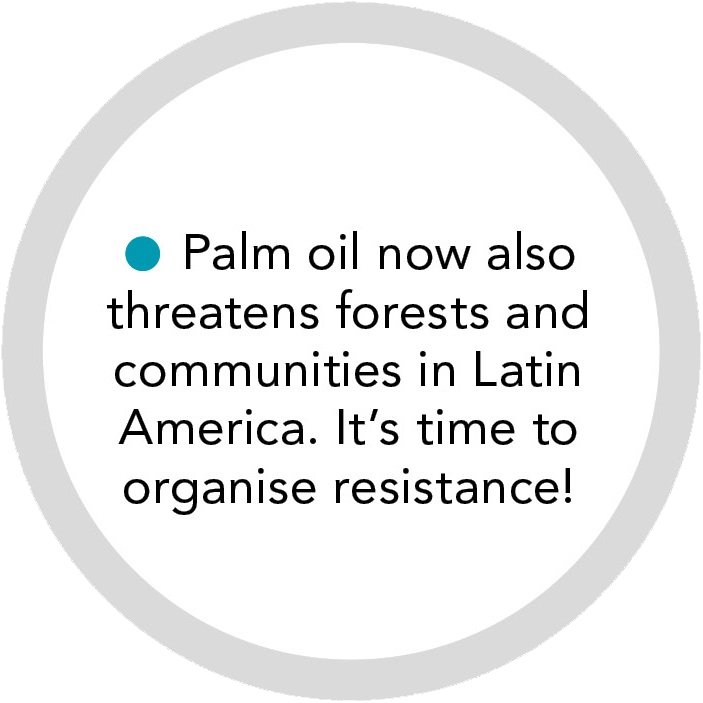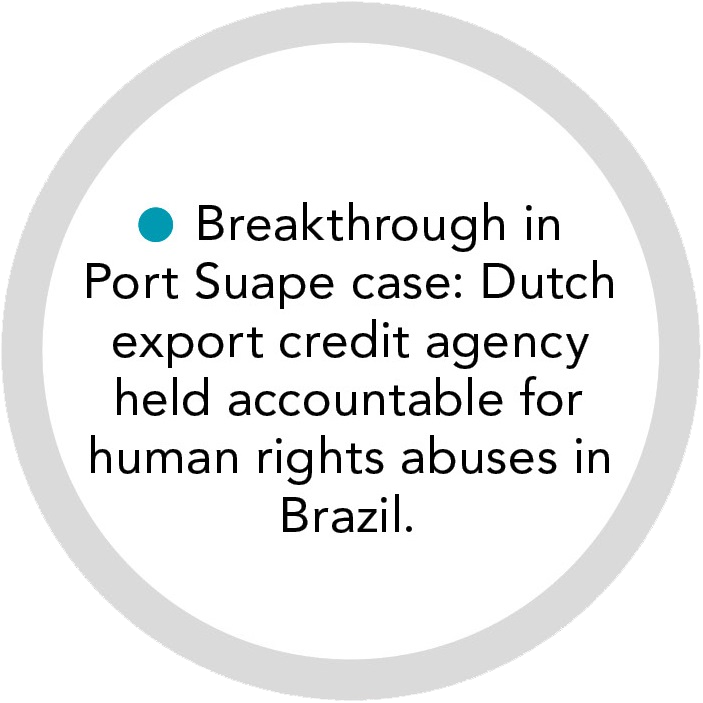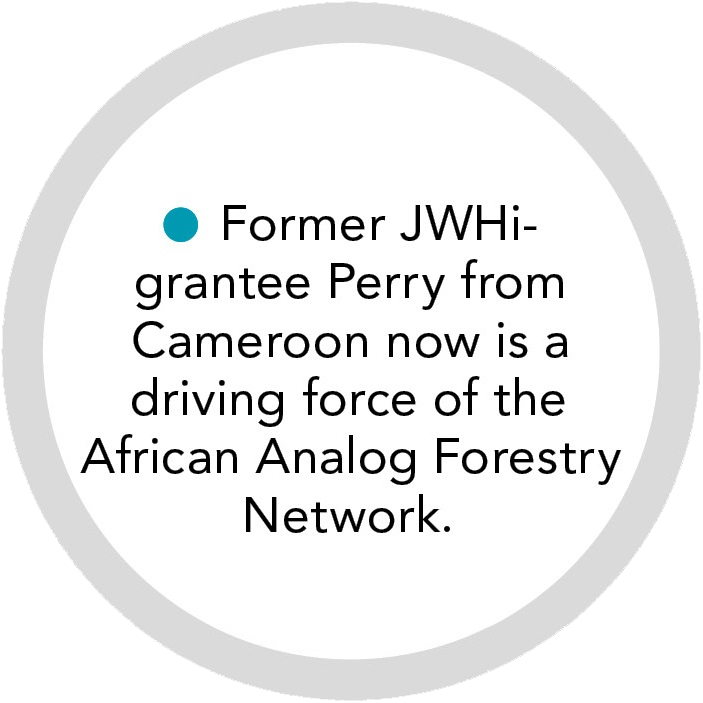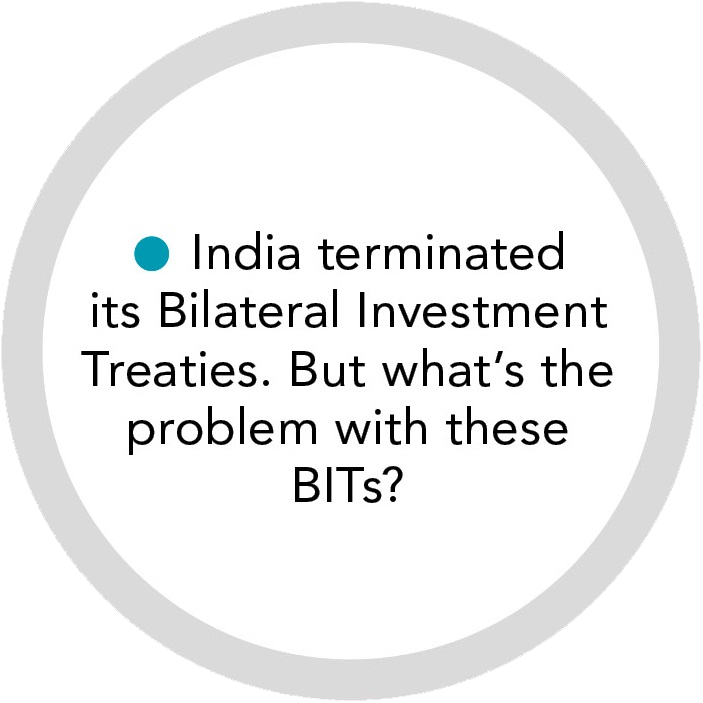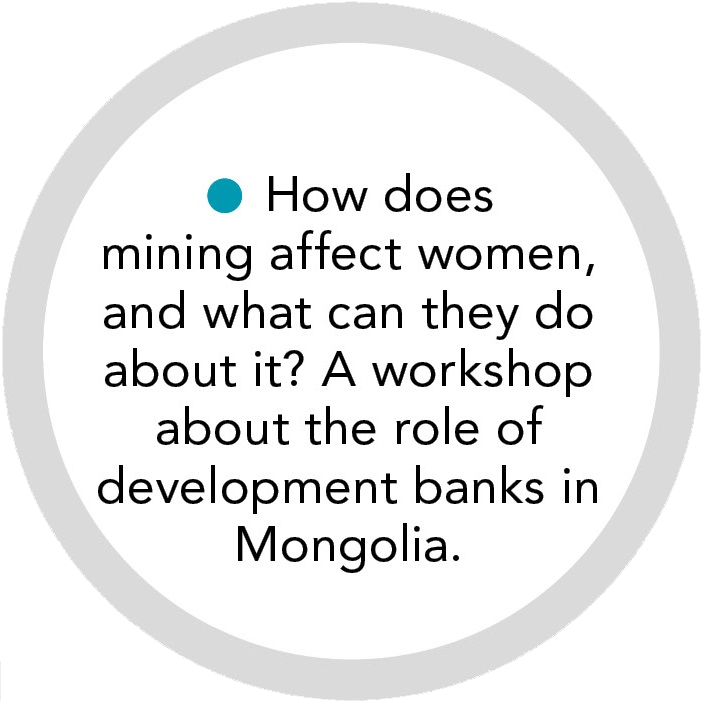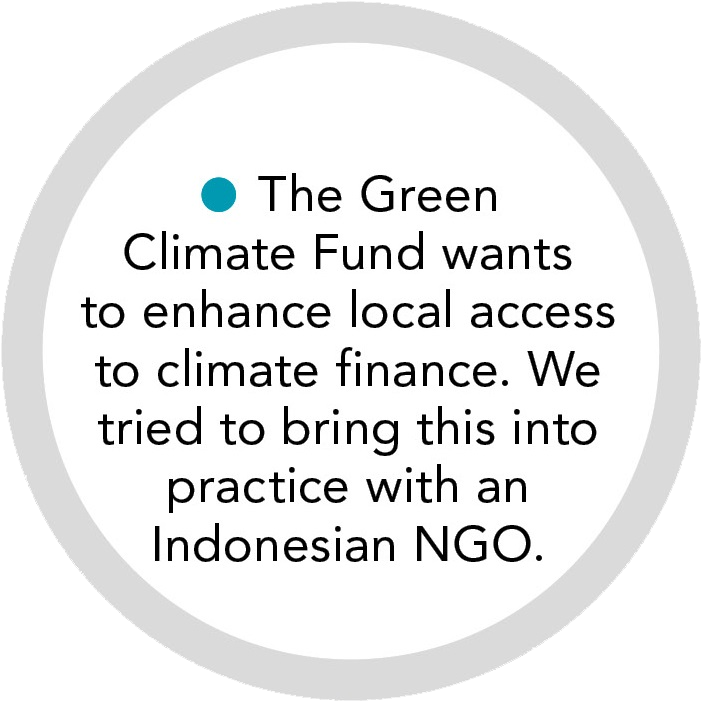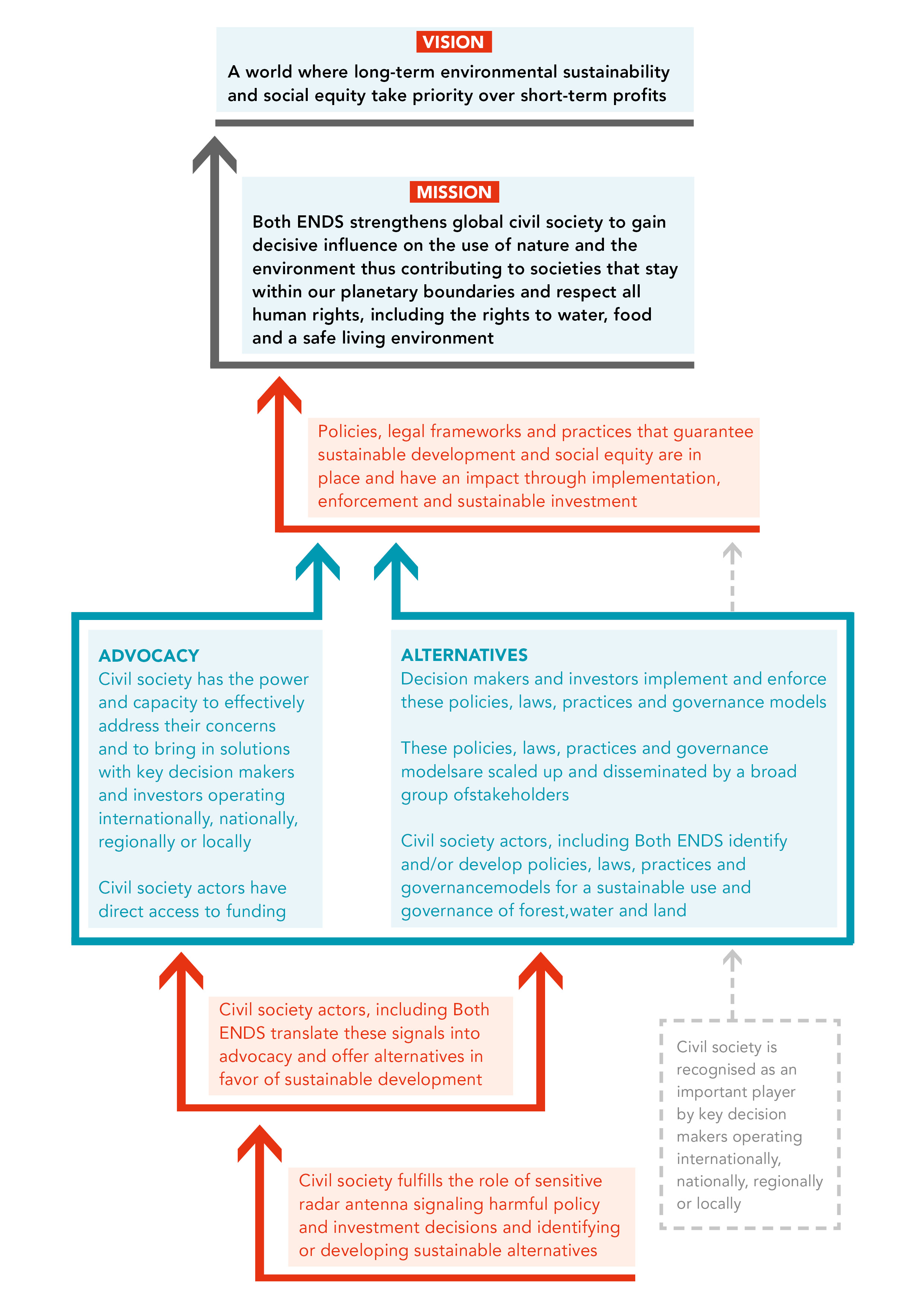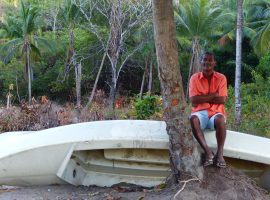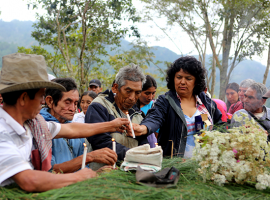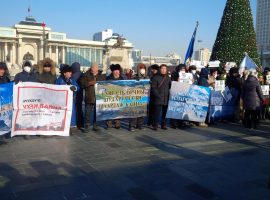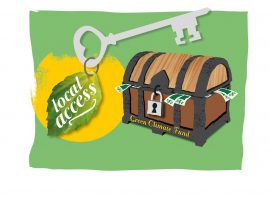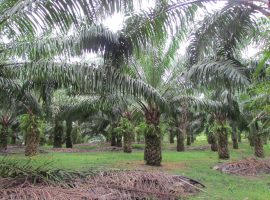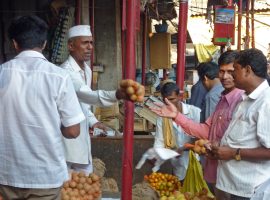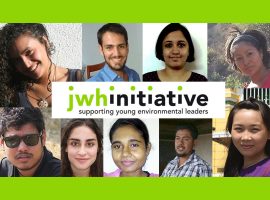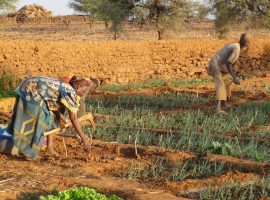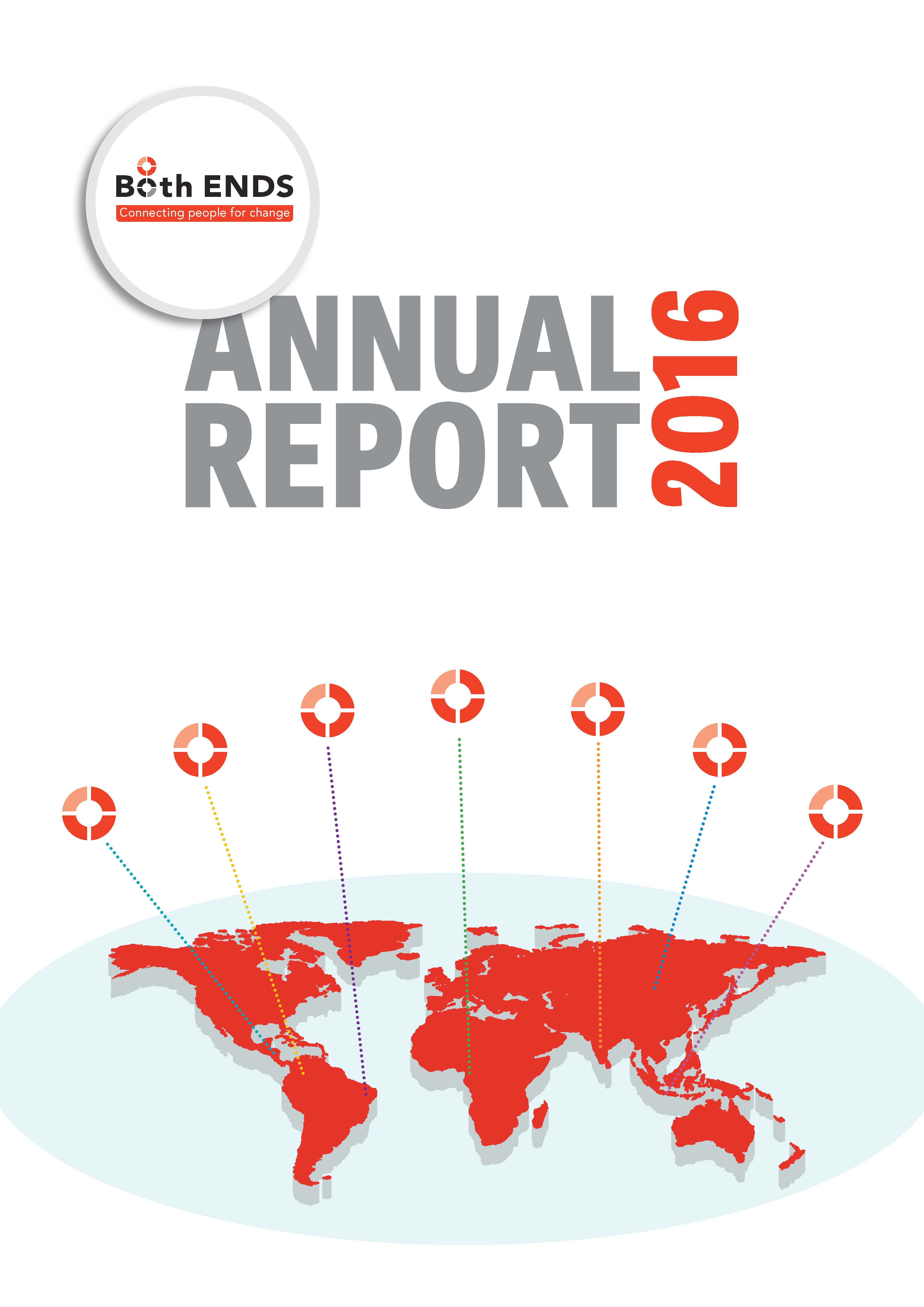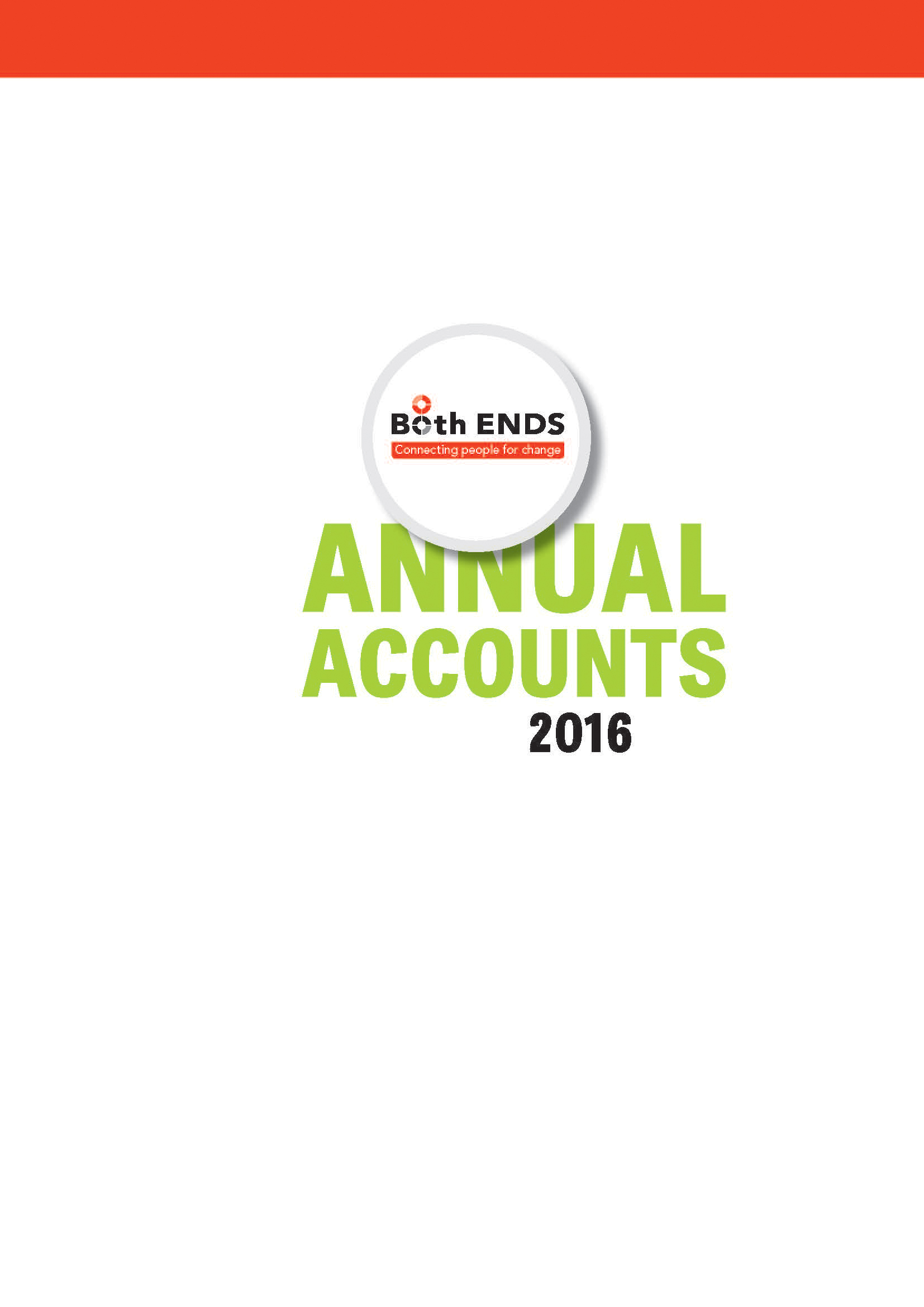A word from our board and our director
2016 was a year full of change. First and foremost, it was the year that our two new strategic partnerships with the Ministry of Foreign Affairs took off. As Lead of the Fair, Green and Global (FGG) Alliance, we get the opportunity to further expand our work on environmental and social justice within the context of the global economic system. These efforts pay off. In 2016, for example, after years of working on the Suape harbour case in Brazil, we finally made a breakthrough, which increases our confidence in future success. In addition, as an alliance we generated a shift in focus from trade policies discussions towards sustainability and equity issues.
As member of the Global Alliance for Green and Gender Action (GAGGA), we will deepen our work on women’s rights by engaging with women’s funds and civil society groups that challenge large scale developments pushed by today’s extractive economies. In this first year of GAGGA, we forged numerous new connections between people and their organisations in different parts of the world. The programme is an inspiring source of energy for the entire organisation and will assuredly help us draw attention to the much neglected social challenges of the ‘green’ agenda. In the coming years, we will certainly reap the fruits of these connections.
Both in the Netherlands and globally, the context in which we operate is changing ever more rapidly. Most remarkable is the rise of authoritarian or right-wing populist regimes in several countries. Their emergence signifies that international frameworks we have taken for granted for the past decades, most notably the human rights framework, are under increasing pressure. This translates into a sensitive and strategic loss of civic space, which in turn makes countries that continue to publicly support both human rights and civil society, such as the Netherlands, important actors in the international context.
At the same time, new and promising global frameworks such as the Paris Agreement and the Sustainable Development Goals (SDGs) have come to being. This could provide pathways into the transition to more sustainable and inclusive societies. If they truly want to fulfil their promises, however, the main challenge lays exactly in assuring that civil society and the less powerful but large majority of the global population get a voice and a vote in (near) future developments. This has to include women and indigenous peoples, who continue to be marginalised economically and politically. In addition, these frameworks need to be connected to ongoing debates on the role our global financial, tax and trade systems play in creating, upholding and deepening unsustainable and inequitable development.
We are proud of the organisational changes that we introduced in 2016. All staff members are finding their feet in the new, self-steering organisational structure that was the outcome of a participative design process. We realise that a profound change like this can be daunting and time-consuming, and applaud all Both ENDS’ employees and Board members for their flexibility, creativity and commitment.
Not everything has changed. In 2016, we continued to work with the many organisations in the Global South that have been our long-term partners. With them, as well as with existing and new allies in the Netherlands and Europe who are as committed to changing the governance structures and practice that influence the lives and livelihoods of people everywhere and of future generations. Together, we will make a fair, sustainable and inclusive world possible.
Danielle Hirsch, Director
Paul Engel, Chair of the board
Our vision and mission
The vision of Both ENDS is a world where long-term environmental sustainability and social equity take priority over short-term profits.
In order to make our vision reality, Both ENDS strengthens global civil society to gain decisive influence on the use of nature and the environment, thus contributing to societies that stay within our planetary boundaries and respect all human rights, including the rights to water, food and a safe living environment.
Civil society actors should have a free, independent, active and influential voice about the use of the natural resources that determine the quality of their daily lives and the future of their children. Respecting the planetary boundaries is a precondition for sustainable development. We should minimalise climate change, loss of biodiversity, pollution and ozone depletion, and use land and water in a responsible way, in order to keep our planet livable. At the same time, sustainable societies should respect all human rights. Not only the rights to water, food and a safe living environment, but also gender equity, indigenous rights and space for civil society.
OUR THEORY OF CHANGE
HOW DO WE ACHIEVE THIS?
For Both ENDS, civil society in the Global South is at the starting point of everything we do. Our global network of environmental organisations, activists, community-based organisations, regional funds and researchers, who continuously signal threats to sustainable development, fulfils the role of our radar antenna.
Civil society actors are also in the best position to offer alternatives to these threats. All over the world, people are engaged in initiatives that prove how economic interests can go hand-in-hand with respect for nature and people’s wellbeing. These initiatives – many of them still small and scattered – present great hope for the realisation of sustainable and equitable economic systems, both locally and globally.
Together with our civil society partners, Both ENDS translates the signals of harmful policies and investments into advocacy and alternatives in favour of sustainable development. Essential for both successful advocacy processes and promotion of alternatives, is the recognition of civil society as an important key player.
ORGANISING ADVOCACY
Based on experiences on the ground, civil society exposes negative impacts of investment, trade and a wide range of policy decisions and instruments. We elevate these concrete experiences to advocate for policies and decision-making processes that implement basic principles of sustainable and inclusive development, focusing on implementation and enforcement.
To do so, civil society needs to have an entrance with decision makers and civil society players need to have sufficient organisational capacity to effectively raise their voice. Sufficient funding is another important precondition for an effective civil society.
Both ENDS closely works with its civil society partners to support each other in our collective aim for increased civic space. We do this, amongst other things, by developing advocacy strategies and performing advocacy and by exchanging knowledge and experiences. Our advocacy not only targets decision makers of public entities, but also public, semi-public and private investors operating at the local, regional or international level.
OFFERING ALTERNATIVES
Next to advocating against harmful developments, it is also of great importance to offer alternatives that support the transition towards sustainable and equitable societies. These alternatives can take the form of policies, laws, practices and governance models and often start as small-scale, local initiatives.
Together with civil society actors, Both ENDS identifies and/or develops these alternative policies, laws, practices and governance models for a sustainable use and governance of forest, water and land, with respect for human rights. We promote these alternatives to have them scaled up and disseminated by a broad group of stakeholders. Finally we want to see key decision makers and investors act upon these alternatives, and have them implemented and enforced.
In the end, by following the combined courses of advocacy (including capacity development) and promotion of alternatives, those policies, legal frameworks and practices that guarantee sustainable development and social equity will be in place and have an impact through implementation, enforcement and sustainable investments.
Working with partners worldwide
Civil society in countries of the Global South plays a key role in the process of achieving real system change for a more equitable and sustainable world. Our southern counterparts are crucial in identifying, developing and implementing innovations that ensure the fair management of natural resources and more sustainable livelihoods. They play an equally vital role in calling attention to and combatting developments which have led to an ever-widening gap between rich and poor, the destruction of the natural world, and violations of human rights.
WHO ARE OUR PARTNERS?
Any organisation that shares Both ENDS’ vision of fair, sustainable and inclusive development can become a partner. Our partners include all kinds of civil society organisations (CSOs), community based organisations (CBOs), non-governmental organisations (NGOs) and research institutions. They can be based in countries in the Global South, in the Netherlands, or anywhere in the world. Both ENDS’ process of identifying which partners to work with does not follow a single or strict protocol. Organisations generally become partners following an organic process of getting to know each other, based on commonalities between our thematic work fields, similar strategies and approaches, complementary needs, and of course positive joint work experiences that have shown to deliver good results.
Both ENDS’ partners can be grouped into four, often overlapping, categories. These are: ‘sparring partners’ – organisations with which we maintain regular contact to exchange of information, content, advice, or contacts; ‘networking partners’ – organisations that are part of the formal and informal networks that Both ENDS established, facilitates or advises; ‘project partners’ – organisations with which we usually have a financial relation in ongoing projects carried out at the local, national or international level; and ‘strategic core partners’ – organisations with which we tend to have long-standing relations and which play an important role in the development of Both ENDS’ strategy and quality monitoring processes.
HOW BOTH ENDS WORKS WITH ITS PARTNERS
Strengthening and empowering civil society organisations in the Global South that work towards creating a more equitable and sustainable world is Both ENDS’ core business. We do this, firstly, by giving direct support to CSOs, which can involve financial support, knowledge sharing and mutual capacity building. Secondly, we work with our partners through several networks. We develop a shared agenda focusing on national, regional or international policy influencing and coordinate our activities. Thirdly, we often work together with our partners in investigations and research. Together, we analyse policies, projects and investments. Both ENDS complements the knowledge of our partners about tangible policy impacts at the local level with knowledge about and insights into Dutch and international policy and financing arenas. This cooperation often results in building a joint case to address human rights violations or people’s grievances about environmental injustice. We equally join hands in our efforts to develop sustainable alternatives based on local experiences and needs. This joint work often leads to long-term commitment and engagement of all parties towards shared advocacy efforts for a more equitable and sustainable world.
OUR NETWORK
A complete list of our partners is available on our website.
Both ENDS plays an active part in a large number of Dutch and international network organisations:
- Adaptation Watch
- AgriProFocus
- Agroecologie netwerk
- Bank on Human Rights
- CDM Watch
- CEE Bankwatch Network
- Civil Society Network (CSO Net)
- Climate Action Network Europe (CAN-E)
- Coalition for Human Rights in Development
- Counterbalance
- Drynet
- Dutch Soy Coalition
- ECA-Watch
- Engaged Funders for Global Equity (EDGE)
- Environmental Funders Network (EFN)
- Environmental Grantmakers Association
- Eurodad
- European Foundation Centre (EFC)
- HR network international
- International Analog Forestry Network (IAFN)
- International Human Rights Funders Group (IHRFG)
- International Union for the Conservation of Nature (IUCN)
- Land Rights Now
- MVO-platform
- Netherlands Water Partnership (NWP)
- Netwerk Natuurinclusieve landbouw
- NGO Forum on ADB
- NL Landscape Approach Platform
- Non-Timber Forest Products Exchange Programme (NTFP-EP)
- OECD Watch
- Partos
- Roundtable on Sustainable Palm Oil (RSPO)
- Seattle2Brussels
- Tax Justice NL
- Voedsel Anders
- Vereniging Tropische Bossen (VTB)
- WO=MEN, Dutch Gender Platform
- Zero Waste
Our projects
In 2016, Both ENDS has been working on a broad range of projects and activities. Some of them are new, such as our involvement in the Agua Zarca case in Honduras. Others, like our efforts for local access to climate finance are part of a longer process. Many of our activities belong to one of the two new strategic partnerships we started with the Ministry of Foreign Affairs: the Fair, Green and Global (FGG) Alliance and the Global Alliance for Green and Gender Action (GAGGA).
With the FGG Alliance, we will continue our efforts of the past five years: striving for socially just, inclusive and environmentally sustainable societies, together with our partners in the Netherlands and in so many places around the world. Fortunately, these efforts pay off. In 2016, for example, after years of working on the Suape harbour case in Brazil, we finally made a breakthrough, which increases our confidence in future success.
GAGGA is a unique new programme that helps us catalyse the collective power of the women´s rights and environmental justice movements. In this first year of GAGGA, we have already forged numerous new connections between people and their organisations in different parts of the world, for example in Mongolia, where women encounter and fight the negative effects of mining.
A selection of our projects and activities in 2016:
Global Alliance for Green and Gender Action (GAGGA)
Uniting women’s and environmental rights activists worldwide
Read More ›The Joke Waller-Hunter Initiative
A boost for young environmental leaders from the Global South
Read More ›
About Both ENDS
2016 marked a year of transition within our organisation. Both ENDS transformed itself into a self-managing organisation and started experimenting with this new way of working in the second half of the year. To further improve certain operational processes, a PMEL (Planning, Monitoring, Evaluation and Learning) expert and a fundraiser were recruited. Moreover, the Both ENDS board welcomed new members.
- OUR ORGANISATION
- GOVERNANCE
- PMEL STRATEGY
- COMMUNICATION
- FUNDRAISING AND ACQUISITION
- FINANCIAL GOVERNANCE AND RESULTS
- RISKS
Our future
THE FUTURE OF OUR WORK
Both ENDS’ work focuses on strengthening civil society globally, to play its role in the transition to sustainable and equitable societies. The organisation is part of a wide range of networks and movements. As part of civil society, we have achieved significant results in setting the agenda of critical policy processes, both through advocacy and through the development of alternative development paths. In many cases, this has led to policies, rules and regulations that strengthen civic space, protect human rights defenders, and the prevention of negative impacts on nature and people’s environments.
The gap between these international agreements, guidelines and national policies, on the one hand, and concrete actions by governments and private companies, on the other, is widening. There is a great urgency to start ‘walking the talk’. Thus, Both ENDS will shifts its focus from agenda-setting to monitoring the implementation of existing policies and regulations related to trade and investment. We will support concrete action by both the public and the private sector to create civic space by implementing recognised standards and regulations, such as the OECD Guidelines for Multinational Enterprises and ILO 169 (FPIC). In addition, we will continue to advocate for redress mechanisms and clearer rules in areas such as the public financing of the fossil fuels industry.
THE FUTURE OF OUR ORGANISATION
In the coming years, we will consolidate our new way of working by supporting all staff as they take on their new responsibilities that come with our new organisational structure. In 2017, we will finalise our new PMEL system. In tandem with this development, we will develop partnerships with a number of colleges and universities to attract volunteers and interns and will further diversify our staff.
We set ambitious goals for diversifying our relationship with funders, trusting that our work on donor education and partnership development over the past couple of years will bear fruit. Increasingly, funders recognise the added value and strategic importance of Both ENDS’ work, and appreciate the organisation’s capacity to truly link the local to the global. Our models for alternative economies, such as the Rich Forests initiative, and the needs of our local partners will be at the core of our funders’ engagement. In particular, we will continue to raise awareness on ‘small grants funds’, which explicitly cater to local groups, and the impact they can have.
In addition, while continuing our work on a wide range of issues, our outreach will be more focussed on specific topics, to clearly communicate our vision, our links to local groups and our impact. Communication campaigns will not only help to show to a broader public the role and influence of Dutch public and private actors on developments in the Global South, but also trigger a change towards a more fair and sustainable economic system.

